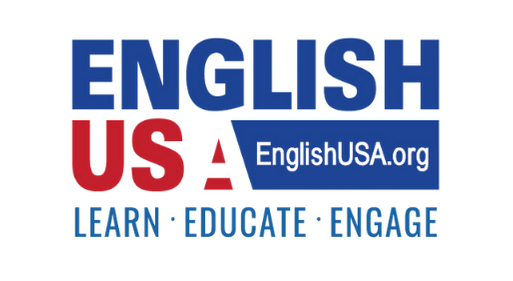ESL Glossary

C
Cashier
The officer of a bank or business in charge of paying and receiving money.Cafeteria
A dining area at a school or office building where meals may be purchased or brought from home and eaten.Cambridge EFL Examinations
An examination to measure non-native speakers' ability to communicate using the English language. The Cambridge EFL exams are recognized by universities, employers, and national education authorities from countries all over the world. This examination is run by the University of Cambridge Local Examinations Syndicate (UCLES). For more Information...Campus
The buildings, facilities, and grounds owned by an institution or school. The term usually applies to institutions or schools that are separated to some degree from the surrounding environment.CAPLS
Canadian Association of Private Language Schools (CAPLS) is a consortium of private English language schools united in promoting Canada as a destination for foreign students wishing to study English or French as a second language. CAPLS creates and supports standards which ensure that students enrolling in CAPLS schools will receive a high quality language education at a quality facility. Founded in 1997, CAPLS currently represents 50 private language schools with over 90 locations in 9 cities across Canada.Certificate
A certificate is a general qualification that is different from a degree. A degree entitles the holder to apply to the next level of academic study, whereas a certificate does not. Certificates are often issued to recognize various academic, professional, or vocational specialties.Check
A written order to a bank to pay the amount specified from funds on deposit. Also known as a "draft."Checking Account
A bank account against which the depositor can draw checks payable on demand.Credit
A unit that is awarded to a student upon completion of an academic course at the college/university level. Depending on the school, different courses can be worth different amounts of credits. In order to successfully graduate and attain a certain degree, the student must have attained the necessary number of credits as indicated by the school.College
A postsecondary institution offering a general, "liberal arts", or vocational education. In general, one can graduate from a college with a degree in a period of four years.Conditional Admission
When applicants do not satisfy one of the necessary requirements for acceptance but are granted permission to enroll under the condition that they fulfill a requirement as decided by the school. Some Universities offer conditional admission to those international students who meet academic requirements for admission but have a low level of English, under the condition that the student improves his/her language abilities by studying at that school's IEP.Consortium
Group of schools that work together to achieve common goals regarding education. Consortiums work to maintain quality levels of instruction in their respective programs.Continuing Education
Instructional courses that improve upon students' existing skills in a particular academic field or professional trade. Often, these courses familiarize students with recently developed practices and technical skills. Continuing Education courses are specifically scheduled on nights and/or weekends so that part time adult students can attend.Consulate
A regional office of an embassy (see "Embassy"). Students can obtain necessary immigration information at the local consulate of your destination country. Also, your home country's consulates that are found overseas can be a good source of assistance regarding visa issues.Co-op / Student Union
A store that is operated by a school which sells items that specifically meet the needs of students. The Co-op/Student Union is typically located on-campus and carries items such as writing utensils, groceries, clothing, etc.Courses, Classes, and Credit
The word "class" is often used interchangeably with the word "course". If you are asked what classes you are taking this semester, you should respond with a list of your courses. "Registering for classes" means choosing the courses you intend to take each semester. For each course you complete you will receive a number of credits. Many universities offer noncredit courses for alumni and other interested members of the general public.Culture Shock
A nervous reaction that often occurs when adjusting to a new culture. Culture shock is normal and affects everyone to a certain degree. It can be dealt with by keeping in touch with one's home culture (friends and family), making new friends (both other international students and natives of the host country), exercising, and setting realistic personal goals.Recommended for You
Apply to degree programs in the United States!
Now with ApplyESL GRADUATE, you can research and apply to a degree program in the United States. Begin your search today! It's always a good idea to prepare ahead of time.
Talk with the School!
Now you can choose your program, get in touch with the staff, and receive the information you need to get started.
Study in the USA with NO STUDENT VISA! Over 40 Popular Schools to Choose From!
Enjoy a "Study Vacation" in the United States! Are you visiting the USA for the first time? Do you want to do sightseeing and improve your English? You can do both by applying for a part-time English course! Find a suitable course from a variety of cities nationwide. Apply now!
Studying English at an American University Campus
Do you want to experience what it's like to be a real student in the United States? Studying English at a university is a great option. You can choose from many famous schools such as UCLA and Columbia University and enjoy living and learning on a university campus.
Choose the Best School for You
Choosing an English program is now possible without going through a study abroad agent! Here we will explain the importance of the 'Do-It-Yourself' application process!
Enjoying Life in the Country
Experience the great beauty of the countryside and the intimacy of small towns in America. Feel the kindness of the American people while studying in the traditional heartland of the United States.
Introducing Comments from ApplyESL.com Students
Learn from Experience! Successful Applications with ApplyESL.com
Trending Schools
Find the Most Popular Schools!








